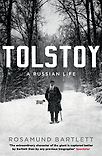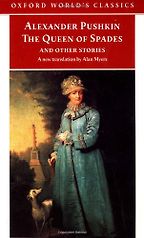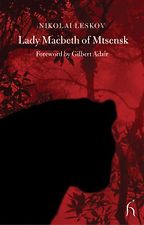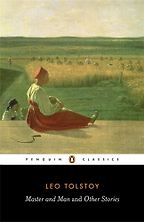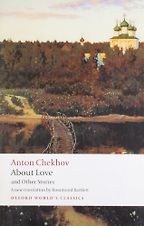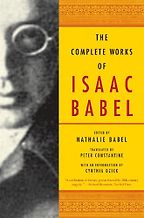What first got you interested in Russian literature?
I was lucky enough to learn Russian at school, with encouragement from my father, who visited the Soviet Union in 1957, and my grandfather, who had joined the Communist Party while a student at Cambridge. He became disillusioned when he visited Moscow in the early 1930s and was told there were no telephones in England, but retained his interest in Russian culture. So I began reading Turgenev and Chekhov in the original when I was 16 years old. I found it all dreadfully difficult to begin with, but then became inspired when I spent time in Leningrad as an undergraduate in the early 1980s.
It is hard not to be swept up by the passion and serious engagement of Russian writers, and it was exhilarating to discover that they were revered in the Soviet Union as national heroes, as they had been in the despotic days of the Tsarist regime. [Alexander] Solzhenitsyn was not exaggerating when he referred to Russian literature as the country’s second government. It frequently fell to writers to be bearers of the truth.
Your five book choices focus on short stories. How would you define them as a genre, as opposed to the big Russian novels like War and Peace?
It’s true that we think of novels before short stories when considering the Russian literary tradition, but all the great novelists wrote peerless short stories as well. And considering their profound influence on Russian novels and also operas, those short stories are sometimes unjustly overlooked. Although we do not expect to find in them profound discussions of the meaning of existence, Chekhov’s body of work certainly bears comparison. He rebelled by only writing short prose, and it is typical of his subversive style that his stories are so deceptively simple – he challenged convention by posing questions rather than giving answers. And if Chekhov was able to tear up and rewrite the rulebook for writing a short story, it is a credit to all the earlier Russian writers whose short stories inspired him.
“Solzhenitsyn was not exaggerating when he referred to Russian literature as the country’s second government.”
The short story form is certainly a lot easier to assimilate – many of the great Russian short stories are real page-turners, and fun to read. They can provide an ideal introduction to Russian literature for anyone intimidated by the big novels, and tend to cover a far wider social and geographical spectrum, so are just as valuable as sources of insight into the Russian mentality, past and present. My selection of these five individual works has been based on artistic merit. But I also want to convey something of the stylistic range and thematic diversity of the Russian short story. Inevitably, that means making some invidious choices and leaving out superlative stories by writers such as Gogol, Turgenev, Dostoevsky, Nabokov, Bulgakov and Solzhenitsyn.
The first short story you recommend is The Queen of Spades by Alexander Pushkin, in the Oxford World’s Classics collection.
Whatever one’s criteria, it is impossible to leave out The Queen of Spades. It’s a story about gambling, and the first undisputed masterpiece in the genre by the writer seen in his homeland as the “Russian Shakespeare”. Pushkin was a protean genius who moulded the cumbersome Russian of the 18th century into the supple and beautiful literary language used today. Although he was primarily a lyric poet, he started moving towards prose fiction at the end of his short life, as you can see in Eugene Onegin, Russia’s first great novel, written in verse.
Apart from being a gripping read, The Queen of Spades is the quintessential St Petersburg tale and an astonishingly modern work. Its author was far more hotheaded than the superbly cool, detached style of the story’s narration suggests. He was sent into exile for his rebellious ideas, and then had to endure submitting his manuscripts to Nicholas I for his personal approval. Pushkin was a gambler himself, of course, and even gambled away his own poetry on occasion. And he went out of his way to fight duels. He was killed in a duel four years after completing The Queen of Spades, at the age of 38.
You say that The Queen of Spades, written in the autumn of 1833, is a modern work – in what way?
First of all, the precision and lucidity of Pushkin’s language make it read like something written yesterday. So many later Russian writers took their cue from him. He also pulls off a spellbinding conjuring trick in managing to exemplify and simultaneously parody a variety of literary genres popular at the time he was writing. His irony and the endless games he plays with his reader make him a kind of post-modern writer avant la lettre.
“The precision and lucidity of Pushkin’s language make it read like something written yesterday.”
On one level, the story emulates the “society tale” popular in the 1830s. There are characters drawn from real life such as the formidable countess, who was inspired by the legendary “Princesse Moustache”, Natalya Galitzine. On another level, it is a romantic tale of the supernatural. Pushkin teases us with a whole host of possible ways to interpret the story’s meaning. The Queen of Spades also looks forward to future debates about Russia’s relationship with Western capitalism. In Crime and Punishment, for example, Dostoevsky clearly models his character of [Rodion] Raskolnikov on Pushkin’s “anti-hero” Hermann, who has a German background. They both have to contend with an old woman and a young girl called Liza, and they both have a Napoleon complex and an obsession with money. A lot of people will be familiar with The Queen of Spades from having seen the opera. Tchaikovsky picks up on the phantasmagoric atmosphere of the story, which helped launch a whole St Petersburg mythology, but he departs radically from Pushkin’s plot.
Your next choice is Lady Macbeth of Mtsensk District by Nikolai Leskov.
This is the most celebrated story by a writer who is not quite so well known in English. It was written in 1864. It is another work overshadowed by its operatic version, which in this case became something of a cause célèbre in the 20th century. In 1936 Stalin used his savage attack on Shostakovich’s opera of it to fire a broadside against all Soviet artists unwilling to conform to Communist Party dictates. So it is quite refreshing to go back to the original source and simply enjoy Leskov’s story as a ripping yarn.
It is a story which shows us a different section of Russian society.
Yes, it’s set deep in the heartland of provincial Russia, which Leskov knew very well. He grew up in Oryol, south of Moscow, and Mtsensk is a town in the Oryol region. Leskov had a lingering memory from his childhood of the funeral of an old man who was murdered by his voluptuous young daughter-in-law while he kipped under a blackcurrant bush on a summer’s day. This is what gave Leskov the idea for his story.
Here we move from the aristocratic milieu of westernised St Petersburg in the 1830s to the oriental world of provincial Russian merchants in the 1860s. Leskov was actually one of the first Russian writers to write about merchants, who were then still a separate social class. They dressed differently, tended to be conservative and pious, and kept their business and their wives behind closed doors. So it is not surprising that Leskov’s young heroine is bored while her husband is away and ends up taking a lover.
The other writer who also focused on the corrupt and autocratic ways of the Russian merchantry was Alexander Ostrovsky. It is tempting to think Leskov’s story is a response to Ostrovsky’s play The Storm, which was written just a few years earlier. It features another bored merchant wife called Katerina who longs for freedom, and is the basis for Janáček’s opera Katya Kabanova. The claustrophobia which both Leskov and Ostrovsky depict is a comment on Russian provincial life, but there are political overtones. It was in the early 1860s, after all, that the new Tsar Alexander II launched the era of the “Great Reforms” after the stifling reaction of the reign of Nicholas I. Ostrovsky somewhat idealised his heroine Katerina, who nobly throws herself into the Volga when her infidelity is discovered, and some radical critics viewed her suicide as a symbol of social protest. Leskov is more of a hard-headed realist. His Katerina is not a heroine with many redeeming qualities, and she ends up becoming a serial murderer in the name of her sexual liberation. She murders her father-in-law by feeding him mushrooms laced with rat poison, she murders her husband and then the heir to the merchant family’s fortunes, and finally ends up murdering her lover’s new mistress before committing suicide herself.
It sounds like a parody of the Shakespearean tragedy.
There is a nod towards Shakespeare’s play, of course, but Leskov’s title is heavily ironic – not least because his heroine is hardly a character of tragic stature. In fact the main allusion is to a story called “Hamlet of Shchigry District” by Turgenev, who incidentally also went on to write another story called “A Lear of the Steppes”.
Turgenev came from the same neck of the woods as Leskov, but he was of quite different stock and of a much older generation. Whereas Turgenev writes in the elegant, slightly archaic Russian which suits his gentry background, Leskov opts for the demotic. He uses a local resident to recount the hair-raising events of Lady Macbeth of Mtsensk District, and his deadpan, folksy narration adds to the story’s colour. This kind of personalised story-telling, which we call “skaz”, was first introduced to Russian literature in Gogol’s short stories, and is linked to oral traditions. The word “skaz” comes from the verb “skazat”, which means “to tell”, and the Russian word for short story is “rasskaz”.
What kind of world does your next author, Leo Tolstoy, write about in his short story “What Men Live By”, in the collection Master and Man?
With this story we jump forward to the 1880s, and into the world of the peasantry as imagined by an aristocrat who went rather further than Turgenev in trying to atone for his guilt before Russia’s oppressed underclass. As well as the great novels, Tolstoy also wrote some very fine short stories. Many people would regard The Death of Ivan Ilych or Hadji Murad as his best short prose work, or maybe even Strider, an extraordinary tale narrated by a horse. I am very fond of this story though, because it is charming, the moral is worn lightly and I know what it meant to Tolstoy.
Rather like the Valkyrie Brünnhilde in Wagner’s Ring, who is punished by Wotan for refusing to bring Siegmund to Valhalla, the main character in Tolstoy’s story is an angel, Mikhail, punished by God for refusing to take a woman’s life. Mikhail is sent to earth to discover what men live by. A humble peasant shoemaker takes pity on the naked man he stumbles across, slumped up against a chapel wall one cold autumn afternoon, and brings him home. After Mikhail has worked for a while as a cobbler and discovered that men live by love, he springs new wings and is allowed to return to heaven.
This story appeared in a children’s journal in 1881. It was Tolstoy’s first piece of published fiction after Anna Karenina, which he had finished four years earlier. In the years in between, Tolstoy underwent a spiritual crisis which led to him rejecting the Russian Orthodox Church. He ended up producing his own translation of the Gospels which threw out all the miracles and concentrated on Christ’s ethical message. Although there is continuity with everything Tolstoy had written before, “What Men Live By” is his first conscious attempt at expressing his new faith in fictional form. It is prefaced by no fewer than eight epigraphs about love taken from St John in his new translation.
So how does it differ from a work like Anna Karenina?
Anna Karenina is a novel written about upper-class society in which peasants are part of the background. But Tolstoy’s conscience was already troubled, and when he finished it he renounced writing fiction for an educated audience. The main characters in “What Men Live By” are peasants. The story is a model of clarity, but with Tolstoy it is always the art which conceals the art. He had wanted to simplify his literary language ever since working on his ABC [educational] book in the early 1870s, just before he began Anna Karenina, but he was an inveterate craftsman. It is quite moving to discover that he produced 33 drafts of “What Men Live By” before he was happy with it.
It is not actually a story Tolstoy thought up himself. He had been entranced by the rhythms and cadences of the Russian language since putting together medieval epics for his ABC book, and would often go out to the main highway near Yasnaya Polyana [his home in western Russia] to chat to the pilgrims and write down some of their sayings. When he learned that in the remote far north of Russia there were still a few peasants who maintained the oral tradition of reciting epic poems and fables by heart, he invited one of them to stay with him. “What Men Live By” is based on a fable told him by this peasant reciter, originally about fishermen from northern Russia.
You are very close to your next story choice, “Gusev” by Anton Chekhov in the collection About Love, because you have translated it.
There has to be something by the founder of the modern short story in this list, but “Gusev” is probably not the work which immediately springs to mind for most people. “The Lady with the Little Dog”, “Ward No 6” and “The Bishop” would all be strong contenders for Chekhov’s best story. “Gusev”, however, is a favourite with poets and probably his most lyrical story. It’s also a very unusual work as it is set on a ship at sea in the tropical Far East. This is not what one expects from a writer who usually uses a humdrum provincial Russian town as a backdrop.
Five Books interviews are expensive to produce. If you're enjoying this interview, please support us by donating a small amount.
Chekhov wrote “Gusev” when he was himself travelling home by sea from Siberia in 1890. He had just completed an epic overland journey to study the notorious penal colony on the island of Sakhalin, in the days before there was a train. “Gusev” was the only piece of fiction which came out of this voyage, and he finished it during a port call in Ceylon, where he later boasted of having an encounter with a dusky maiden under a palm tree.
Gusev is the name of the story’s central character. He is a peasant conscript returning from a brutal period of service in the Far East, and is already dying of tuberculosis when put on board the ship. What is surprising about this story is the extraordinary flight of imagination which brings it to an end. Gusev’s body is sewn up into a bag and thrown overboard, and Chekhov describes the corpse descending to the seabed and its close encounter with a shark.
You talk about it being lyrical – how do you make the best translation you can to keep to the lyrical feel of that language?
When you read this story you cannot help remembering how much Chekhov owed to [Mikhail] Lermontov, and in particular his exquisite story “Taman” which forms part of his novel A Hero of Our Time. I’m not surprised that this is the story which Shostakovich wanted his wife to read to him on the night that he died. He said it was the most musical prose in all of Russian literature, and I’m inclined to agree. The translator needs to listen out for the rhythms of the story, which gently rise and fall like Gusev’s bunk in the sick bay of the ship. Chekhov evokes Gusev’s delirious state by creating a dream-like atmosphere in which sentences often trail off into nothingness, indicated by his trademark ellipses. It is not a coincidence that Chekhov uses this musical form of punctuation an astonishing 75 times during the course of this brief story. That’s more than he uses it in any other story, and is similar to the way he inserts pauses into his plays. Chekhov was a very deliberate writer – detail was paramount for him – so the translator needs to understand what he was doing with his punctuation as much as with the way he constructed his sentences. The dream-like atmosphere is all the more effective when Chekhov contrasts it with Gusev’s moments of consciousness, when he talks to his cabin mate, an embittered and equally deranged intellectual.
Your final author sounds like a very interesting character – can you tell me something about Isaac Babel?
Babel is one of a number of great writers from a Jewish background who started appearing on the Russian literary scene in the early 20th century. If they didn’t appear before, it was because they were mostly restricted to small villages in the iniquitous Pale of Settlement [region of Imperial Russia]. Babel was born in the magical port city of Odessa, which uniquely had a large Jewish population because of the Russian government’s desire to encourage trade. It was in Odessa that Babel published this story in 1921, when he was at the start of his career. He is a brilliant stylist, much better known for the stories in his collection Red Cavalry, but “The Sin of Jesus” is a very funny story. It’s also blasphemous, and would today probably be defined as a piece of magic realism.
Like Tolstoy’s story, it is about an angel who is naked when he falls to earth, and both stories feature a woman who has twins – but there the similarities end. The heroine is Arina, an illiterate Moscow chambermaid who is six months pregnant. When her boyfriend beats her up, after she tells him she won’t remain chaste while he is away on military service, she decides to consult Jesus. Despite the references to Forgiveness Sunday, a time for penitence and chastity which falls at the beginning of Russian Lent, Jesus gives Arina an angel to keep her company. He’s called Alfred, and he has been pestering Jesus to let him go back down to earth. Arina brings Alfred down the silken stairway to Tverskaya Street. She dresses him and cooks him a nice supper, but then they start drinking vodka, with inevitable consequences. After carefully unclipping Alfred’s wings from their hinges and putting him to bed, Arina ends up rolling over and crushing him to death. When Arina goes back to Jesus he curses her for being such a slut, but she later raises her swollen belly to the heavens and complains. Jesus now begs her forgiveness for being a “sinful god”, but Arina refuses to grant it.
This is another story narrated by an uneducated local who makes no distinction between the fantastical and the everyday. There is a delightful parody of Biblical language when Arina suddenly arrives in heaven and Jesus talks in slang. It would be hard to imagine a story more profane.
Is there something which unites and defines Russian short-story writers?
Probably the same thing which defines Russian writers in general: a creative genius which led them to forge their own tradition. When Russian writers started writing novels they refused to adhere to the traditional European format, and I think that is true for short stories as well.
March 12, 2012. Updated: May 23, 2025
Five Books aims to keep its book recommendations and interviews up to date. If you are the interviewee and would like to update your choice of books (or even just what you say about them) please email us at [email protected]

